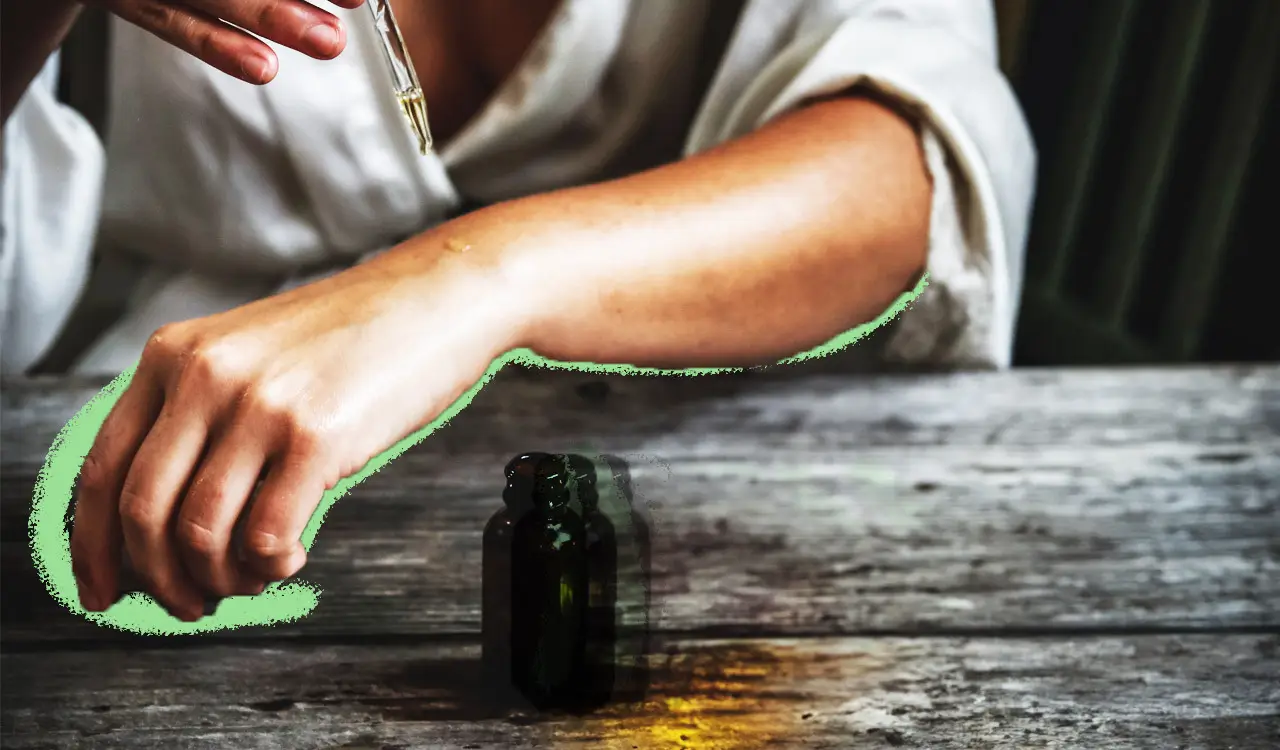It isn’t particularly scientific, but with just a cursory search of my inbox, I can legit report on trends within the beauty industry. And what my stuffed-to-capacity Gmail is telling me right now is that the once red-hot CBD beauty category is on serious life support.
The emphasis has changed from skincare, along with a smattering of makeup and hair potions, to wellness. So, while I’m not being pelted with news of cannabis-fueled serums and moisturizers, there are plenty of CBD bath bombs, lubricants, gummies, and functional beverages promising to take the edge off.
I wouldn’t say dead; I’m still receiving the occasional press release about new launches. But compared to the deluge four years ago, when I wrote about the then-nascent category for this very publication, it’s slowed to a mere trickle.… as in .5 inches of rain in a single hour versus our current climate crisis-driven seven.
CBD Wellness
Even more telling is that the emphasis has changed from skincare, along with a smattering of makeup and hair potions, to wellness. So, while I’m not being pelted with news of cannabis-fueled serums and moisturizers, there are plenty of CBD bath bombs, lubricants, gummies, and functional beverages promising to take the edge off.
This is despite the fact that even the NIH has reported that topical cannabis offers a lengthy list of potential skin benefits, particularly its ability to fight inflammation and irksome conditions like acne, psoriasis and eczema. In other words, it’s calming, which is kinda what you might expect from a skincare ingredient derived from weed.
So, Where Are Those Big Numbers Coming From?
Shifting from anecdotal to more concrete intel, I started digging for current statistics.
What surfaced was a handful of expensive recent reports serving up what I suspect to be wildly inflated numbers around the global CBD beauty market, skincare specifically.
Case in point: A report by Straits Research claims that the CBD skincare market is growing by a CAGR of 32.15 percent and is expected to reach $6.4B by 2030. Another by Grand View Research has an even more optimistic 2030 prediction of $8.62B.
Baffled by these massive projections, I reached out to industry expert Krupa Koestline, cosmetic chemist, and founder of KKT Consultants, which specializes in developing brands in the clean beauty sector. “I’m quite surprised to see these predictions on CBD skincare reaching $6B by 2030,” she says. “I would have believed that if it covered mainly marijuana skincare sold in dispensaries, like muscle balms and such. But I totally say it’s bullshit that the CBD skincare market is going big.”
Koestline is candidly skeptical about the power of CBD to effect real change in the skin once it’s been stripped of THC, as it is in the current crop of products. Thus, she isn’t particularly surprised or bummed that the category appears to be fizzling.
Whither the Mighty Lord Jones?
But back to these reports, which are seriously out of date and flat-out wrong. Why? They both list Lord Jones and Kiehl’s as major players in CBD skincare. Um….not so much anymore.
When I first wrote about the CBD skincare market, the impossibly cool Lord Jones was firmly atop the heap. Launched in 2015 by California-based husband and wife team Robert Rosenheck and Cindy Capobianco with a mission of creating the world’s first chic marijuana dispensary, it offered products steeped in both THC and CBD and kicked off with edibles, oils, and lotions.
Within a year and change, its first viral product, a collaboration dubbed Lord Jones x Tamara Mellon High CBD Formula Stilletto Cream, was a red-carpet juggernaut, sported by every star in need of pain relief from high heels. Before long, the full range of Lord Jones’s lifestyle offerings was popping up on the pages of fashion glossies
So meteoric was Lord Jones’s rise that by 2019, it had been acquired by Cronos Group for $300M. In 2020, Cronos unveiled another CBD skincare brand, Happy Dance, co-founded with actress Kristen Bell.
But by January of this year, Cronos had pulled the plug on the short-lived Happy Dance. Later, in June 2023, it announced that it was shuttering its U.S. operations of Lord Jones and moving the brand to Canada, which has considerably less red tape around marijuana-based businesses than in America. While not ruling out a return to the U.S. should regulatory issues subside, for now, Lord Jones is making a new life for itself north of the border.
Kiehl’s Has Some Major Explaining to Do
As much as it’s being hyped by market report purveyors as a hot commodity in CBD skincare, Kiehl’s certainly seems to think its customers are incredibly unclear about what the ingredient is and what it purports to do for our complexions.
How else to explain the massive FAQs section on Kiehl’s website surrounding its star CBD elixir, Cannabis Sativa Seed Oil Herbal Concentrate Face Oil? It features questions like “Would this cause someone to fail a drug test? Does it come from the same plant as marijuana?” And my personal favorite, “Is Cannabis Sativa Seed Oil Herbal Concentrate addicting?\” It’s clear Kiehl’s recognizes its customers haven’t achieved peak comfort level with the concept of CBD skincare.
That could explain one reason why Kiehl’s has already discontinued one of its companion CBD products, Cannabis Sativa Seed Oil Herbal Cleanser. But then again, the “Discontinued” section of the L’Oréal-owned brand is robust. Oddly, Kiehl’s isn’t shy about shining a spotlight on its poorer performers.
The Bottom Line: A Tough Regulatory Market
With the passing of The Farm Bill in 2018, which removed hemp — classified as cannabis and cannabis derivatives with no more than 0.3 percent THC — from the definition of marijuana in the Controlled Substances Act, the CBD skincare category would seem to have paved a clear path to profitability.
Certainly, the consumer interest was there, as evidenced by the massive spike in internet searches. And clearly, there was no shortage of brand builders and product formulators. So, what went wrong?
According to Koestline, all the cannabis-related red tape in the U.S., which varies by state, certainly didn’t help. Some states place restrictions on CBD-centric e-commerce and online advertising, and Shopify requires a bigger upfront cut from CBD brands. Even worse, PayPal, Apple Pay and AfterPay don’t accept CBD merchants at all.
But the bigger problem, as Koestline points out, is customer confusion around “all the different full spectrum vs. broad-spectrum vs hemp extracts. A lack of education has led to consumers avoiding these products completely.”
Despite the plummet in traction for the category, I’m not ruling out a renaissance for CBD skincare in the future. If it’s as good at calming inflammation as the true believers say, there’s no reason why it shouldn’t take its rightful place in cosmetic chemists’ ingredient arsenals alongside retinol, hyaluronic acid and the like.
But for that to happen, the benefits will need to be crystal clear for the consumer. And even more important, the state-by-state regulatory red tape will need to go up in a puff of smoke.





